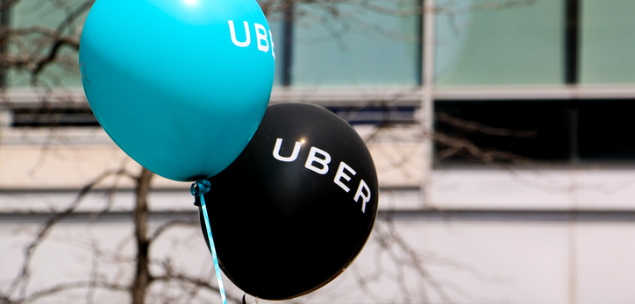Drivers for Uber and other rideshare companies are being ripped off, assaulted, threatened and racially abused, a new survey reveals.
The survey of 1100 drivers released on Wednesday says more than 60 per cent reported earning below the average hourly $16 rate, before costs such as fuel, insurance and car maintenance.
There were also 969 reports of harassment and assault. The survey, by the Transport Workers’ Union and Rideshare Driver Co-operative, reported one-in-10 drivers being physically assaulted on the job while six per cent were sexually assaulted.
“A passenger pinned me into my seat with his body weight while he used a hand to sexually assault me,” one respondent said.
Thirty-seven per cent reported being threatened while almost a third received racist comments.
“I have had drunk passengers call me a n***er and terrorist”, one driver told the survey.
Another driver reported a passenger joked “about taking me to a remote location to rape me.”
One respondent filed a police report after being held at knifepoint, with the rideshare company failing to deactivate the passenger’s accounts.
Drivers also complained of being immediately deactivated from the ride-share apps when passengers leave wallets behind or make false reports.
“Drivers want to be paid a fair rate, we want protections against threats and assaults and we want to go to work and know our company will not sack us without giving us a right of reply,” said the co-operative’s Emmett D’Urso.
The Transport Workers’ Union’s Tony Sheldon said the “shocking and disturbing” survey results reveal the true nature of the on-demand economy, where drivers are being ripped off and forced to struggle.
“They’re offered no support when they face sexual or physical assault and must choose between taking time off work to recover or going back to work the next day in order to get paid,” he said.
“They are kicked off the app on a whim of the ride-share companies and prevented from earning a living.
“These survey results expose the lie from the federal government that people can make a fair wage in the on-demand economy. In reality, what’s going on is eighteenth century exploitation via an app.”
The survey was conducted between July and October. Respondents, some of whom work for multiple rideshare companies, work for Uber (97%), Ola (46%), Taxify (26%), DiDi (22%) and others (15%).
A spokesperson for Uber said, “Flexible work that can be tailored around your life has traditionally been hard to find. When we talk to driver-partners about why they drive, it comes back to flexibility. Driver-partners can choose to use the app for hours that suit them and their families – for some that might be 9-5, but for others it can be during their morning commute, weekend evenings, or the early hours of the morning. They are also free to drive for other ridesharing apps.”
“We want driver-partners to be successful which is why we invest in innovations to get more riders using the app and by sharing information with driver-partners to help them identify which parts of a city are busier than others at various times,” said the spokesperson.
“Uber is committed to the safety of drivers-partners and we continue to work on promoting the safe use of our app and tackling tough issues with safety experts and leading organisations in Australia. In addition we continue to build cutting-edge technology and features to help improve safety for riders and driver-partners on the app.
“We launched Share My Trip to give driver-partners the ability to share information about their trip like where they are on the map. Last month we announced new safety features, including an in-app emergency assistance button for all riders and driver-partners across Australia.”
An Ola spokesperson said, “The TWU survey is a sign that some rideshare drivers would like to see increased earnings and better measures for their safety. Regarding safety, it is is our top priority at Ola and we have a zero-tolerance policy against anything that compromises the well-being of our drivers and customers. In our app, we have a 24/7 emergency button available for both drivers and passengers. We’ve had this feature available on the Ola app from day one since launching in Australia.”
“Ola works with relevant authorities to ensure we meet all safety requirements for drivers and riders. We condemn any act of crime on our drivers. We always extend all support and cooperation with necessary authorities,” the spokesperson said.
“We continually listen to our drivers and the community, and are working closely with them to constantly improve the service we provide to ensure a safe, reliable and enjoyable ride.
“In regards to earnings, Ola strives to provide a positive contribution to Australia’s rideshare industry. We offer a standard commission rate of 15% which means drivers retain 85% of the total fare (excluding tolls, fee and taxes). Drivers take home more per ride on Ola than with the incumbent, through our lower commissions.”
With AAP.

